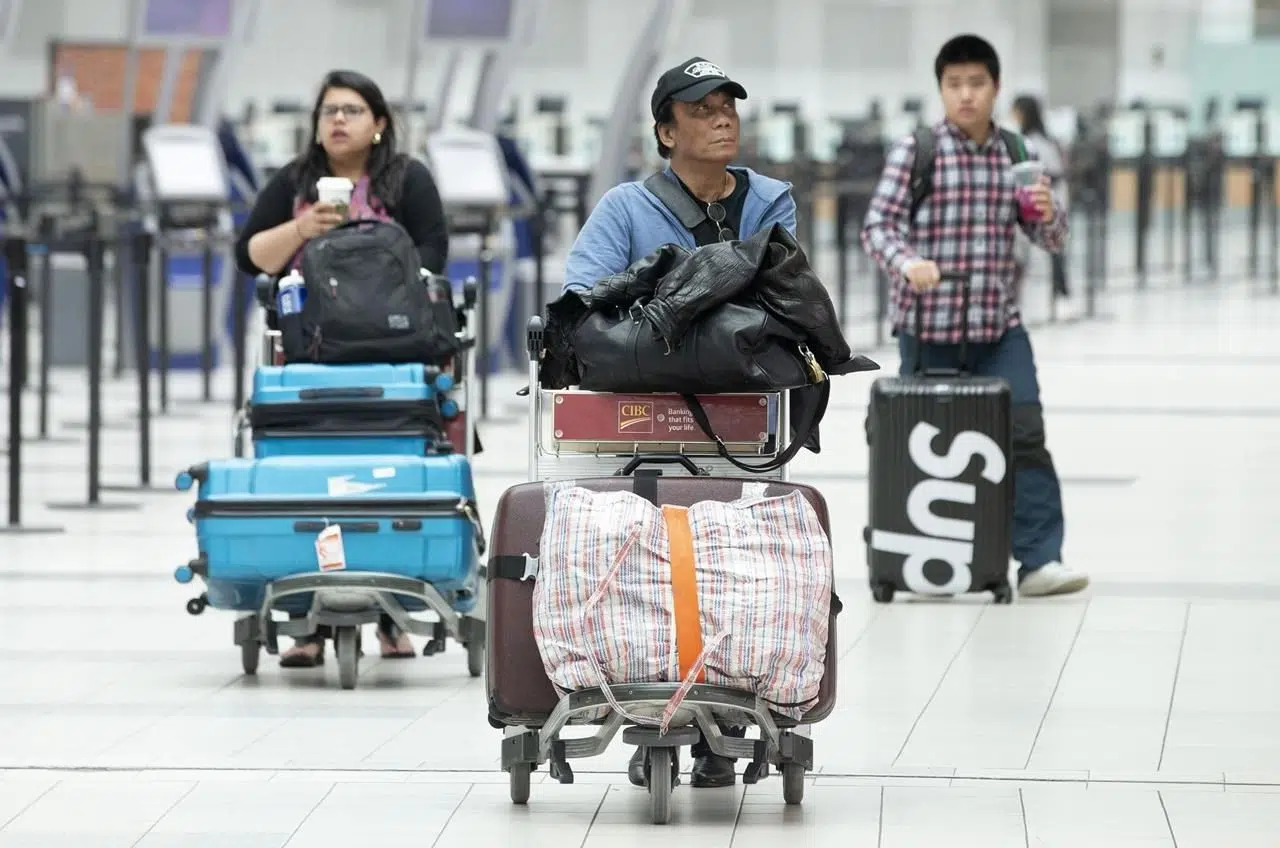OTTAWA — Fully vaccinated Canadians returning to Canada will soon be able to avoid a mandatory quarantine as long as they still test negative for COVID-19.
Public Safety Minister Bill Blair said Monday the government is still urging people not to travel internationally right now, but noted the border restrictions that began more than 15 months ago “were never intended to be permanent.”
“We recognize that people are anxiously awaiting to reopen the border and as Canada reaches high levels of vaccination coverage and the COVID-19 severity trends continue to decline, the risks associated with international travel will decrease,” said Blair, at a virtual news conference.
Air travellers who have been fully vaccinated for at least two weeks won’t have to spend any time at a quarantine hotel, and neither air nor land travellers who are fully vaccinated will have to quarantine at home at all as long as they test negative before and after arrival.
For now the new rules only recognize the four vaccines Canada has authorized, and will not apply to most foreign nationals. The federal government would not provide any specific metrics for when the border closure will lift for anyone else, though test results from vaccinated travellers returning will help guide decisions about when to nudge the border open even further.
“As we’ve told Canadians all along, easing measures at the border will happen as we see our communities increasingly become safe,” Health Minister Patty Hajdu said.
She said further adjustments will be made based on infection rates and health-care capacity in Canada, as well as international infection rates and the impact of new variants of the virus that causes COVID-19.
“We’ll come back to Canadians in the near future on what kinds of metrics will allow us to have the confidence to reduce measures even further,” she said.
Canada hit its first national vaccination targets over the weekend, with more than three in four eligible Canadians at least partly vaccinated, and more than one in five fully vaccinated. Canada expects to have enough vaccine delivered to fully vaccinate every Canadian over the age of 12 by the end of July.
The seven-day average of new daily cases fell below 1,000 Sunday for the first time since the start of the second wave of the pandemic in Canada last September.
The travel rules will change at 11:59 p.m. Eastern time on July 5, and affect only people who are currently eligible to travel to Canada. That includes Canadian citizens, permanent residents, people registered under the Indian Act, some refugees and international students and some foreign nationals such as those who are reuniting with family in Canada, travelling for essential work purposes or to undergo medical treatment.
Air and land travellers must still have a negative COVID-19 test no more than 72 hours before arrival, and upload that and vaccination status to the ArriveCAN app. Another test must be taken the day of arrival.
Passengers must have a quarantine plan prepared in the event that test is positive. If it’s negative, they will not need to quarantine.
Unvaccinated travellers will see no change to the re-entry rules.
Falsifying vaccination documents can result in a $750,000 fine, up to six months in jail, or both. Blair said the government will be able to verify the vaccination certificates, but said Canadians should carry a digital or paper copy of their vaccination records, for both doses, in addition to uploading it to the government’s app.
“We’re very confident that the ArriveCAN app will do the job for us, for all travellers coming to Canada, to be able to verify the vaccine documentation,” said Blair.
Children who aren’t fully vaccinated, arriving by air with fully vaccinated parents won’t have to go to quarantine hotels but, along with unvaccinated children arriving by land, will have to quarantine at home for two weeks, and take a second test on the eighth day.
Fully vaccinated refers to people who got all needed doses of the four vaccines Canada has authorized, at least 14 days earlier. The approved vaccines include Pfizer-BioNTech, Moderna, AstraZeneca and Johnson & Johnson. That would include two doses of the same vaccine, or a combination of two, and just one dose of J & J’s vaccine, which is the only vaccine approved in Canada that only requires a single dose.
J & J hasn’t been used in Canada yet but almost 12 million doses have been administered in the United States and it is starting to roll out in small quantities in parts of Europe, including Ireland.
Transport Minister Omar Alghabra said the government is also ending the ban on incoming flights from Pakistan but is extending the flight ban for flights from India for at least another month.
The ban was enacted in April when too many people arriving from those countries were testing positive for COVID-19.
Health Canada data shows between June 6 and June 17, 73 flights landed in Canada carrying at least one passenger positive for COVID-19. There is no public data on the vaccination status of those passengers.
Mia Rabson, The Canadian Press











